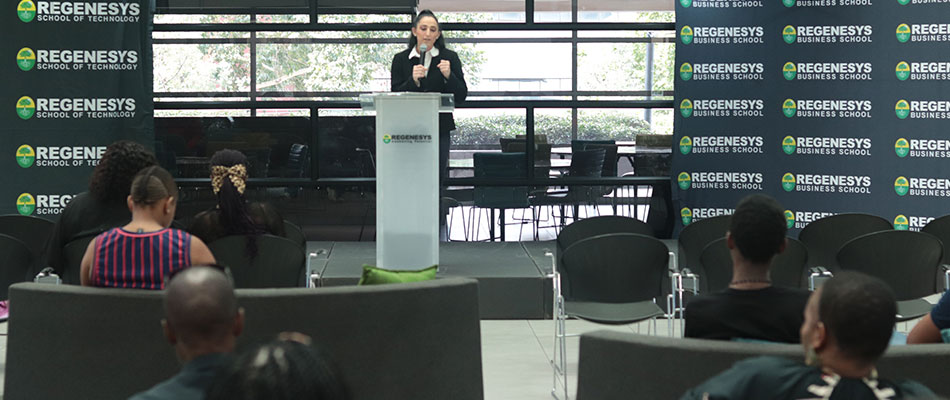A university education is an important step in gaining the skills and knowledge required for a professional career. It can help provide students with the technical and soft skills required to excel in competitive roles. In addition to professional gains, a university education can also help foster personal development and growth.
When one talks about university it includes undergraduate and postgraduate courses offered across various disciplines. Enrolling in a university can help students hone their skills and find a field of study they are passionate about.
In this article, we will provide a step-by-step guide on how to apply for university, including university entry requirements and where to fill out the application form.
Table of Contents
- Applying to South African Universities in 2025: A Step-by-Step Guide
- 1. Choose Your Field of Study
- 2. Select the Right University in South Africa
- 3. Read Student Reviews of Universities
- 4. Understand University Entry Requirements
- 5. Meet Language Proficiency Standards
- 6. Understand Where to Submit Your University Application
- 7. Apply before the Application Deadlines
- 8. Final steps after receiving your acceptance letter
- Conclusion
- How to Apply for University? – FAQs
Applying to South African Universities in 2025: A Step-by-Step Guide
South Africa offers some of the top universities on the continent and is an attractive choice for international students looking for a global education. At the same time, thousands of South African students will also apply to universities once the matric results are released on 16 January 2025.
Students who wish to apply for undergraduate programmes at universities must secure a Bachelor’s Pass. However, alternative paths are also available to pursue undergraduate programmes at universities in South Africa.
Additionally, university programmes are offered at the master’s and doctorate levels for students who wish to gain a deeper understanding in a particular field or pursue a career in research.
With these simple steps, we make it easy for students to learn how to apply for university in South Africa.
1. Choose Your Field of Study
The first step in how to apply for university, is finalised the field of study. South African universities require students to secure a minimum Admissions Point Score (APS) for specific subjects and an overall score based on their matric exams.
Therefore, students enrolled in South African high schools usually have a clear idea of the education they wish to pursue at university. They pick elective subjects in high school that are required for that field and the mandatory subjects.
Students who are thinking of pursuing a master’s degree need to decide whether they wish to pursue a technical degree or opt for a programme such as an MBA that will help them make gains in the corporate world.
Read more on How are Final Matric Marks Calculated
2. Select the Right University in South Africa
Once students finalise their field of study, they must research universities offering that particular programme. They should also ensure that the university is registered with the Department of Higher Education and Training (DHET) and offers accredited programmes.
Accredited programmes help ensure that the institute has undergone an independent evaluation and meets standard requirements. Additionally, they help demonstrate that the institute offers a valuable and credible learning environment that meets society’s needs. This is an important step students must follow in the guide for how to apply for university.
The Department of Basic Education (DBE) website provides students with a complete list of universities in South Africa, including their addresses and contact information.
Regenesys is a top choice for undergraduate and postgraduate programmes in South Africa. It registers with the DHET and offers accredited programmes in various fields at the undergraduate, postgraduate, and doctoral levels. These programmes can be studied on campus, or students can enrol for more flexible online learning options.
3. Read Student Reviews of Universities
Students should research the universities they are considering in detail. This is an important step in learning how to apply for university in South Africa. Students should also visit shortlisted universities and speak to the students to learn more about their experiences. Many universities have scheduled open days when prospective students can visit with their families.
Prospective students can search for student reviews on independent websites or university forums if that is not possible. This will allow students to understand the campus experience better and be better informed about what is expected of them at university.
4. Understand University Entry Requirements
Meeting the entry requirements is an important step in how to apply for university All South African universities require students to secure a Bachelor’s Pass in the matric exams or have an NQF Level 4 qualification to be eligible for undergraduate programmes. Students must hold an NQF Level 8 qualification to apply for postgraduate programmes.
In addition to this, each university has programme-specific requirements. These include subject-wise and overall APS scores. Some institutes, such as Regenesys, require students to achieve a Bachelor Pass, an NQF Level 4 qualification, or an accredited and relevant NQF Level 5 qualification.
5. Meet Language Proficiency Standards
The next step in how to apply for university is to ensure that students meet the language requirements.
High school students in South Africa must study two languages at the Home Language (HL) and the First Additional Language (FAL) level. Several universities require students to meet a specific score for English at the HL or FAL level to be considered for admission since most university programmes are conducted in English.
For international students to gain admission into a South African university, they must be proficient in English, Afrikaans, or any of the country’s other official languages. Some universities might require students to submit an IELTS score.
6. Understand Where to Submit Your University Application
Once students have checked the requirements for their short-listed universities, they are ready to fill out the application forms. These individual forms are available on the official university websites. Along with the application, students must also attach all the required documents.
When filling out the university application forms, students must ensure all the information is correct and current. Filling incorrect information can result in their applications being rejected.
Most universities require students to create a login and passport that allows them to submit the application and keep track of their admission process.
While most universities prefer online applications, some have the option of printing application forms and applying via post.
7. Apply before the Application Deadlines
The most crucial step in how to apply for university is to submit the application and all the required documents before the deadline. Most universities allow students to save their applications and complete them over the course of several days.
Students must take time to complete and double-check their applications before submitting them to the university for processing. They must ensure that all the required documents are attached and that the application fee has been paid.
The Regenesys application process is open, and students can apply until 3 February 2025 to commence their studies in the next academic year. The main campus is in Johannesburg, but students can also enrol in online programmes.
Read more on Universities Open for 2025 Applications
8. Final steps after receiving your acceptance letter
Once students receive their acceptance letter from their preferred universities, they must decide where to register. Next, they must confirm their acceptance and apply to any bursaries or student loans if required. This is the final step in how to apply for university. Once students successfully complete these steps, they are ready to begin their university journey.
International students must apply for a visa before starting their studies in South Africa. They must also apply for bursaries or international student loans in their home country.
Conclusion
Attending university is a right of passage for most students, and it improves career prospects while fostering personal development. Students should research the various available fields of study and find one that aligns with their interests.
The high school subjects that students choose are critical for most university applications in South Africa. Therefore, it is important to check subject requirements, including language proficiency, before beginning the application process. Students can follow out guide for how to apply for university for a seamless process.
Students interested in enrolling for university programmes must check out Regenesys. Our applications are open until 3 February 2025.
How to Apply for University? – FAQs
Can international students apply to study in South Africa?
Yes, South African universities accept international students as long as they meet the entry criteria.
What is the deadline to apply for university?
All universities have separate deadlines depending on the programme of study. The application deadline for Regenesys is 3 February 2025.
How to apply for university online?
Students must do individual research on programmes and check student reviews. Once they have finalised their programmes, they can apply directly through the university website.
Should I go to university?
Universities help to provide knowledge in specialised fields, improving job prospects and overall standard of living.
Can I attend university without a Bachelors Pass?
Students can complete a Higher Certificate programme and use that as a basis for admission for undergraduate studies.
Is there an age limit for attending university?
Currently, there is no age limit if one wishes to enrol in university.
How to apply for university in South Africa?
Students can check the list of universities on the DBE website, research their programmes, and check rankings and student reviews before applying to their shortlisted universities.






